Physiopedia has released 3 new FREE COVID-19 online courses. If you think more about how we can stay healthy in this challenging time, these nutrition, physical activity, mental health (and short sleep) courses will help you stay healthy and keep your patients healthy.
On March 16, Physiopedia published a series of 4 COVID-19 courses that summarized information that is relevant to all rehabilitation professionals to help them develop an understanding of the virus and the related disease, and investigate their role in treating related diseases, and also contain and alleviate the disease. This second series of courses is more about how we're staying good through this new global pandemic, and offers knowledge that you can share with your patients to help them stay healthy.
To access these courses, all you need to do is set up a free Physioplus test account (set up for free and free forever). When you log in to your Physioplus account, simply go to the full course list and search for the COVID courses. 14.5 CPD points / CEUs are available free of charge on this very relevant topic.
We are grateful for the generous support of the World Association for Physiotherapy (WCPT), who supported Physiopedia COVID-19's response. Physiopedia has been a professional partner of WCPT since 2013 and the two organizations meet regularly to exchange ideas, projects, ambitions and coffee! Over the next few months, Physiopedia and WCPT will continue to work together and share knowledge about COVID-19 to support the global physiotherapy profession in this very challenging time.
The new courses
COVID-19 and nutrition
Nutrition is not a cure for COVID-19, but it can be modified to contribute to the development of chronic diseases that are associated with serious COVID-19 diseases. A balanced diet strengthens the immune system and reduces the risk of chronic diseases and infectious diseases. Every physiotherapist should be aware of the benefits of a healthy diet and be able to provide sound nutritional advice to his patients, especially those with chronic illnesses.
Take this course now to optimize your patient's diet.
COVID-19 and physical activity
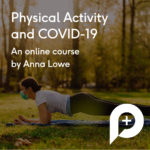 The COVID-19 pandemic is an unprecedented time around the world. Extensive social distance policies have been applied that limit the daily activities of people around the world. These social distancing and blocking measures mean that people have far fewer opportunities to be physically active. Although these extreme measures are important and necessary in a time like today, our bodies and minds still need physical activity and the many advantages associated with it. This course focuses on the importance of physical activity even during closure and the effects of physical inactivity during off-periods. The role of physical activity as part of physiotherapy interventions during COVID-19 is also highlighted.
The COVID-19 pandemic is an unprecedented time around the world. Extensive social distance policies have been applied that limit the daily activities of people around the world. These social distancing and blocking measures mean that people have far fewer opportunities to be physically active. Although these extreme measures are important and necessary in a time like today, our bodies and minds still need physical activity and the many advantages associated with it. This course focuses on the importance of physical activity even during closure and the effects of physical inactivity during off-periods. The role of physical activity as part of physiotherapy interventions during COVID-19 is also highlighted.
Start this course now! Free!
Mental health during the COVID pandemic
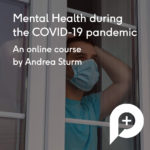 The worldwide outbreak of the novel corona virus affects everyone – patients, health professionals and the general public. An important aspect of human well-being is mental health, which is likely to be overlooked when responding to a pandemic. In this course, we learn how mental health can be affected by patients and health professionals, and introduce relevant management strategies.
The worldwide outbreak of the novel corona virus affects everyone – patients, health professionals and the general public. An important aspect of human well-being is mental health, which is likely to be overlooked when responding to a pandemic. In this course, we learn how mental health can be affected by patients and health professionals, and introduce relevant management strategies.
Now help both your own and the mental health of your patients
Other Free COVID-19 Courses
Understanding COVID-19
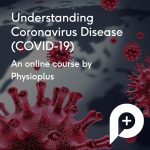 Coronaviruses are a family of viruses that cause diseases such as respiratory or gastrointestinal disorders. In January 2020, a previously unknown corona virus was identified in Wuhan China. The group of diseases associated with infection with this new virus has been designated by the World Health Organization (WHO) as Coronavirus Disease 2019 (COVID-19). After its rapid spread around the world, the WHO declared the COVID-19 a pandemic. It mainly shows breathing difficulties, fever and can lead to severe acute shortness of breath in high-risk populations.
Coronaviruses are a family of viruses that cause diseases such as respiratory or gastrointestinal disorders. In January 2020, a previously unknown corona virus was identified in Wuhan China. The group of diseases associated with infection with this new virus has been designated by the World Health Organization (WHO) as Coronavirus Disease 2019 (COVID-19). After its rapid spread around the world, the WHO declared the COVID-19 a pandemic. It mainly shows breathing difficulties, fever and can lead to severe acute shortness of breath in high-risk populations.
Understanding Corona Virus
Infection Prevention and Control
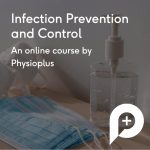 Infection prevention and control procedures and techniques are essential for good public health to limit healthcare-acquired infections and the general spread of epidemics and control pandemics. An essential part of this is basic hand hygiene, which forms the basis for infection control. The use of personal protective equipment (PPE) such as gloves, masks, robes and goggles enables medical personnel to treat patients with communicable diseases and to protect themselves and others. The procedures for putting on (putting on) and taking off (taking off) PSA must follow certain sequences and techniques to ensure the best methods of infection control and prevention.
Infection prevention and control procedures and techniques are essential for good public health to limit healthcare-acquired infections and the general spread of epidemics and control pandemics. An essential part of this is basic hand hygiene, which forms the basis for infection control. The use of personal protective equipment (PPE) such as gloves, masks, robes and goggles enables medical personnel to treat patients with communicable diseases and to protect themselves and others. The procedures for putting on (putting on) and taking off (taking off) PSA must follow certain sequences and techniques to ensure the best methods of infection control and prevention.
The best method for limiting the spread
Role of Physiotherapy in COVID-19
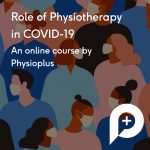 Coronavirus Disease 2019 (COVID-19) has led to a global pandemic that affects a large number of countries in the world. As a front line practitioner, it is likely that physiotherapists and physiotherapists will come into direct contact with patients infected with this virus. It is therefore important that they understand the many aspects of their role in identifying, containing, alleviating and treating the symptoms of this disease. This includes implementing methods to reduce the transmission of COVID-19, initiating strategies for early detection and the appropriate treatment of identified cases in the clinic and at home. Note: A detailed review of the physiotherapeutic airway care of these patients will be treated in a subsequent course.
Coronavirus Disease 2019 (COVID-19) has led to a global pandemic that affects a large number of countries in the world. As a front line practitioner, it is likely that physiotherapists and physiotherapists will come into direct contact with patients infected with this virus. It is therefore important that they understand the many aspects of their role in identifying, containing, alleviating and treating the symptoms of this disease. This includes implementing methods to reduce the transmission of COVID-19, initiating strategies for early detection and the appropriate treatment of identified cases in the clinic and at home. Note: A detailed review of the physiotherapeutic airway care of these patients will be treated in a subsequent course.
Physiotherapy and COVID-19 management
Breath management of COVID-19
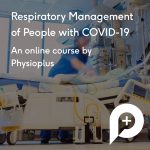 About 15% of people with COVID-19 develop a moderate to severe illness and require hospitalization and oxygen support, another 5% require admission to an intensive care unit and supportive course Therapies including intubation and ventilation. The most common complication in severe COVID-19 patients is severe pneumonia. However, other complications can include acute respiratory distress syndrome (ARDS), sepsis and septic shock, multiple organ failure, including acute kidney injury and heart injury. Physiotherapists need to understand their role in treating patients with COVID-19 in the acute hospital setting and also in rehabilitation after recovery from the disease.
About 15% of people with COVID-19 develop a moderate to severe illness and require hospitalization and oxygen support, another 5% require admission to an intensive care unit and supportive course Therapies including intubation and ventilation. The most common complication in severe COVID-19 patients is severe pneumonia. However, other complications can include acute respiratory distress syndrome (ARDS), sepsis and septic shock, multiple organ failure, including acute kidney injury and heart injury. Physiotherapists need to understand their role in treating patients with COVID-19 in the acute hospital setting and also in rehabilitation after recovery from the disease.
Breath management of COVID-19